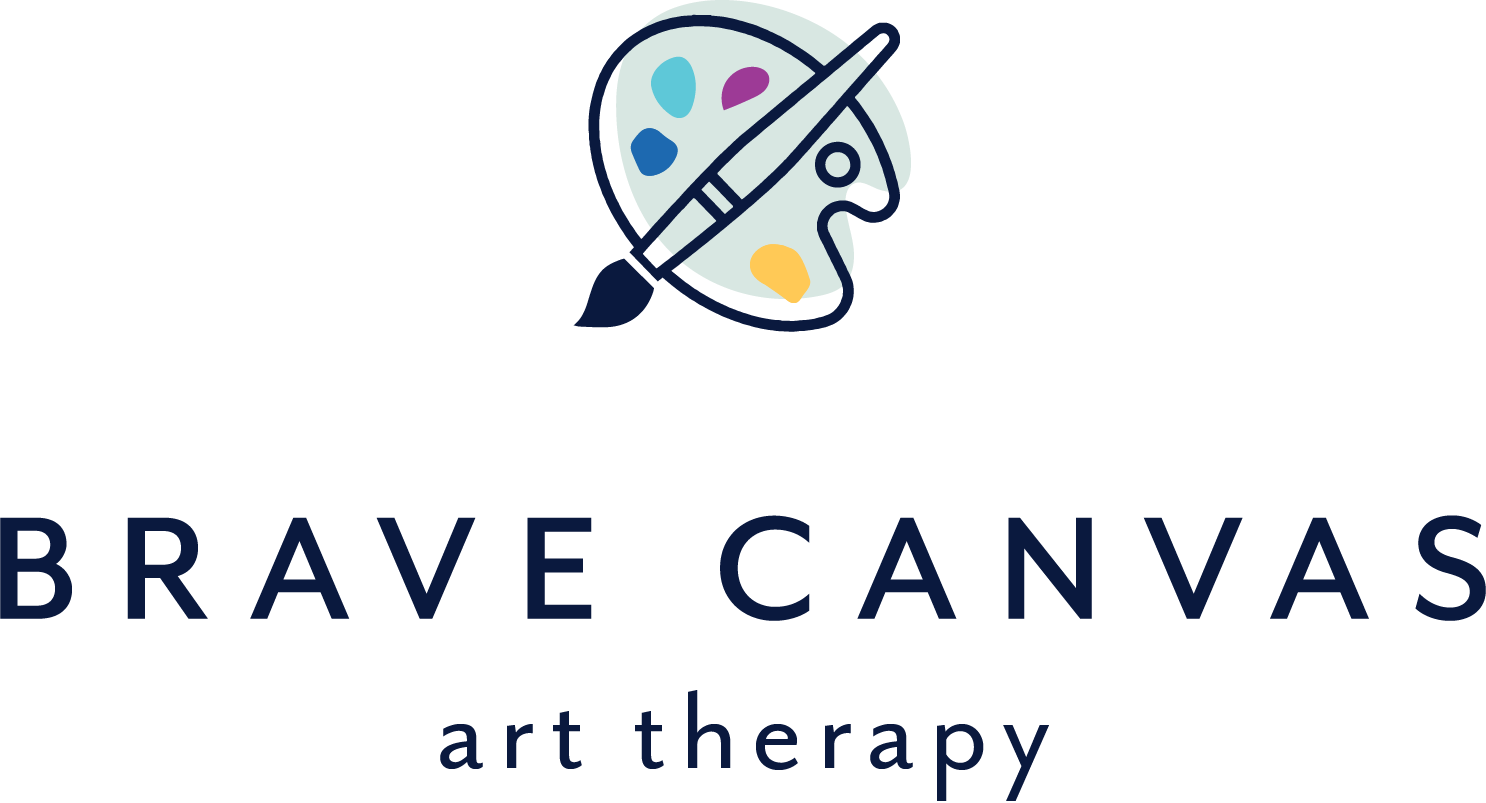
FREQUENTLY ASKED Questions
+ What is art therapy?
Art therapy is a union of art and psychology. The purpose of art therapy is not about learning art techniques; rather, the emphasis is on what arises during the creative process and reflecting on the feelings and perceptions connected to the final art product. It is non-invasive and can involve a variety of forms including drawing, painting, sculpting and collage. It is an effective, non-traditional, and often an enjoyable and interesting way of gaining useful tools and effective tools for moving through life's challenges.
+ What sort of issues have you worked with?
The most common challenges experienced by my clients are anxiety and depression. Art Therapy is also an appropriate therapeutic modality for major life changes, addressing past trauma, stress reduction, loss of a loved one, relationship challenges, identity shifts and loss of previous connection to creative pursuits.
+ What are the benefits of participating in art therapy?
Engaging in art therapy can produce the following results:
- Stress reduction
- Increased self-esteem
- Heightened self-awareness
- Enhanced cognitive function and decision-making abilities
- Improved interpersonal skills
- New insights and clarity on old or recurring problems
- Coping skills for problematic situations and behaviours
- Personal growth and development
- Sense of pleasure and satisfaction
- Better understanding of one's true self
+ Why is therapy so expensive?
Therapy is an investment - an investment in your health and well-being. Everything that’s important to you costs money - going to a hockey game, taking a trip, making your car payments. In the same way that getting an education or taking care of your physical body takes time, money and effort, so does therapy. The good news is that the results will carry with you throughout your life time, not just during the time spent in sessions. Furthermore, if you calculated the amount of money you spent trying to mitigate your anxiety or challenges in other ways, or how much your self-sabotaging behaviour might be limiting your potential to work, be in healthy relationships, or engage in a life that you enjoy, then the cost of therapy would pay off in dividends.
+ How will I know if Art Therapy is for me?
The best way to determine if art therapy and a specific therapist are a good fit is to come in for a visit. This allows you to get a sense of what it's like to be in the office/studio space, and if the therapist you are meeting with feels like someone you can trust. You may want to evaluate how you feel during your time together; if what's being said and done resonates for you, and if what has occurred feels like it has been beneficial to you.
It is of utmost importance that you feel comfortable with your therapist, because this relationship is the best determinant of success in therapy. We never take it personally if you decide to keep looking and see a different therapist. While it may be expensive, it is worth it to trust your gut and keep looking until you find the therapist that feels like the right fit for you.
If we are unable to offer what you need for whatever reason (for example, your specific challenge being beyond our scope of practice or expertise), then we will refer you to another qualified practitioner.
+ When is a good time to begin therapy?
Undergoing therapy is not easy, and it’s important that you have the time, energy and financial resources to support this process. Sometimes life can throw us into this place and sometimes the motivation comes from within. What matters is that you are open to using your inherent strengths to face the fear, stress, or discomfort that you may be experiencing. It is also important that you have adequate time for self-care, reflection and attending sessions on a regular basis.
Therapy can be an ongoing part of your mental health - just like yoga is an every day practice. It can also end when you feel your goals and hopes for therapy have been achieved based on the progress and results achieved from when you started therapy. We will continue to check in over time to ensure we keep doing what is working and tweak what is not.
+ Do you work with adults?
Absolutely! Even though art is commonly thought of as something for kids, it is a very effective and enjoyable approach for all ages.
+ But I’m not an artist; I never draw!
You do not have to be a self-identified or professional artistic to participate in art therapy. We are all creative. More than anything, it important that you have an interest in exploring your inner landscape creatively and expressing yourself in an arts-based way.
+ What makes therapy different from counselling?
Counseling refers to a relatively brief treatment approach focused on solving a specific and current issue or problem.
Therapy focuses on understanding and uprooting the longstanding thoughts, feelings, behaviours and defenses which interfere with one’s quality of life including health, happiness and relationships. It seeks to understand and uncover the root causes of these problems as well as offer tools for managing triggers and challenging emotions. The safety of the experience allows your true and authentic self to emerge, resulting in an overall shift in mood and self-understanding, as well as greater amounts of freedom, self-acceptance, growth, resilience and love.
+ Can you prescribe medication?
No, only a medical doctor can do this. To change or obtain prescriptions you need to meet with your physician.
+ Can you do an assessment of my child for school?
No, I cannot conduct child evaluations for school or custody purposes, nor do I provide diagnoses.
+ What should I do if I am in crisis?
Contact the Crisis Response Center at (204)940-1781 or the Klinic Crisis Line at (204)786-8686
